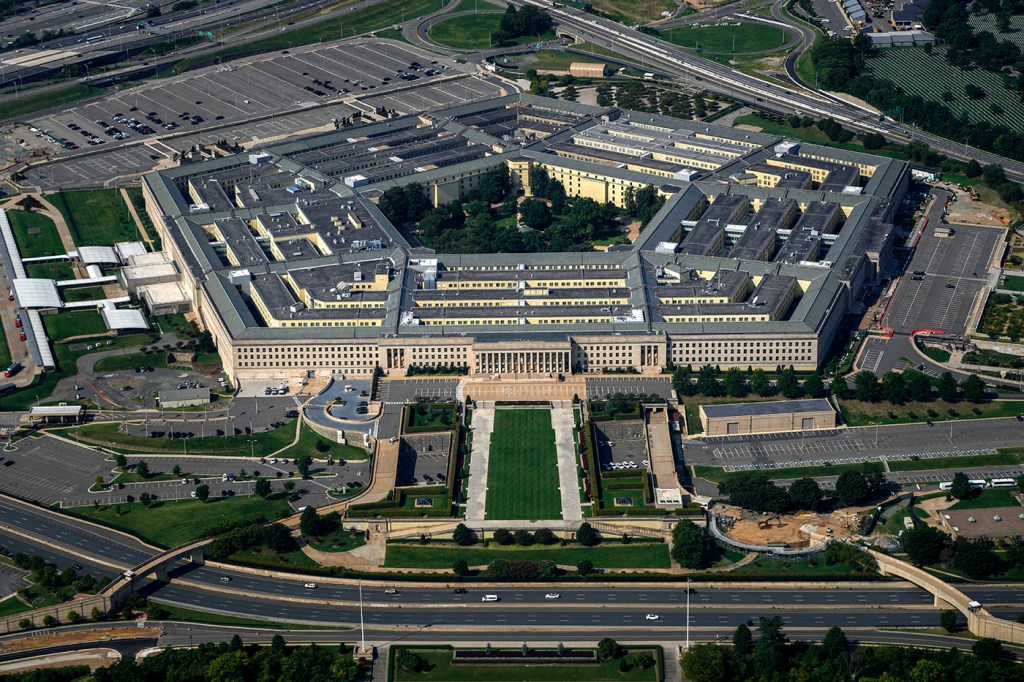Homeland security expert details what would a government shutdown mean for US national defense

The idea of a government shutdown has the nation rightfully on edge — not least because it’s a very real possibility.
With Congress in disarray over a stopgap measure to fund the government through Nov. 17, federal agencies are bracing for a suspension of many government operations — some critically important to the institutions, programs and infrastructure undergirding American life and prosperity. Just some of the programs impacted by a shutdown would include nutrition and immunization assistance through the Special Supplemental Nutrition Program for Women, Infants and Children; food safety inspections through the Food and Drug Administration; and the operation of national parks and museums.
The nation’s security may also be imperiled by a shutdown, says Stephen Flynn, founding director of the Global Resilience Institute — a fact defense officials have alluded to several times this week.
Flynn detailed the cascading effects of a potential shutdown on the nation’s defense and security infrastructure in a Q&A with Northeastern Global News. His responses have been edited for brevity and clarity.
You’ve been through a few of these, Steve. What has past experience meant in terms of what a shutdown does to the nation’s defense and intelligence infrastructure?
First of all, there are no good things that come out of it. They’re [shutdowns] increasingly more costly; they’re disruptive and have cascading effects. It’s just insane. But it all has to do with duration. When a shutdown lasts for a relatively short period of time, the effects aren’t as noticeable. Especially for folks whose paychecks come twice a month — if the shutdown lasts just a few days, they’ll still get their paychecks in time and life will be fine.

The effects really start to kick in when you get to more than a week — and even longer than that — it gets exponentially more disruptive and costly. The government, as before, divides its workers into “essential” and “non-essential” personnel, and for anyone involved in national security or homeland security, they are expected to continue performing their duties. It can be particularly challenging in the military for junior personnel. What we saw with the previous shutdown was that many service members living on the poverty line, when they miss a paycheck, really notice the hardship.
In the last major shutdown, the impact was on the Coast Guard, not on the other Armed Services, and we really saw the entry-level folks struggling. As a consequence, they can’t buy food and everything else they need. And they can’t work a second job because they still have to show up to work and training.
During the last shutdown, the impact over time also wore on the Transportation Security Agency — again, pretty low-paying jobs. There were increasing levels of absenteeism. I mean, if people aren’t getting paid, why are they even going to work? Many would call in sick or just not show up; and TSA already suffers from high turnover because of, among other things, the burnout, the lack of promotional opportunity. As we start to ramp up to a busier travel season, that really starts to become kind of a worry.
In terms of our defense contracts and private sector partnerships — what impacts could we see to that work?
All contracted work, if it’s dependent on government funding, will come to a halt, and that’s much more complicated to recover once the budgets are turned back on. If you’re in a contract, and your people are not working, you simply can’t recover the costs because your people are not working. Those contractors would have to lay off folks, or they’re eating it somehow to try to hang on to their workforce. But it all gets very messy. It’s not the way a first-world superpower should be behaving.
What would a shutdown mean for our personnel abroad? Are the effects any more or less acute on them?
There’s two parts to break down here. If someone is a government employee, whether they are Armed Services or an administrative employee, they will almost certainly get back pay once the shutdown is resolved; or they’ll get paid on time if it gets resolved before their next paycheck.
For anyone who is under a contract, they’re the ones who are not going to be able to collect back pay. Some of those workers are overseas, others are doing more of your back office type functions. All of that gets disrupted, and those folks won’t be paid.
In general, when you are overseas, you tend to have more government employees versus contractors. But it depends, actually, on which government department or agency you are talking about. The State Department relies heavily on contracted employees to staff the various embassies. Those folks will be vulnerable to the shutdown as well.
Any final thoughts on the topic?
I’ll say one more thing. This situation is often framed as a political story — that is, right up until the government shuts down. Then it becomes a very real story about the direct and harmful impacts on people’s lives. These are people who are committed to public service; they are willing to serve in our Armed Forces and put their lives on the line, and the fact that we’re not honoring that commitment by ensuring that Congress does its core job — appropriating budgets in order to make sure the government functions — is disgraceful.
Tanner Stening is a Northeastern Global News reporter. Email him at t.stening@northeastern.edu. Follow him on Twitter @tstening90.






